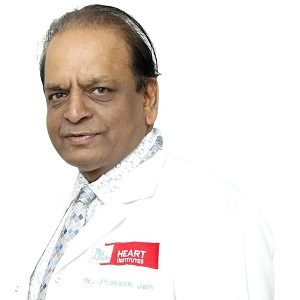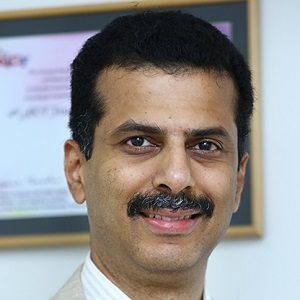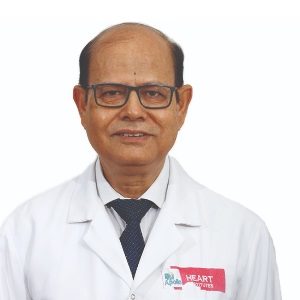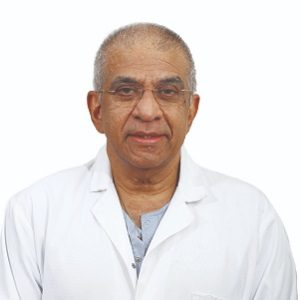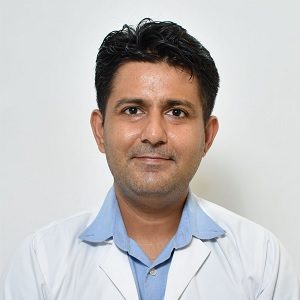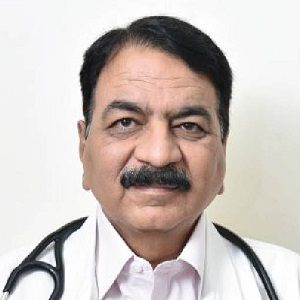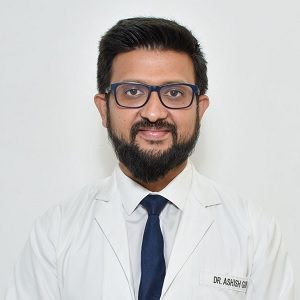Best Doctors in India for Thrombolysis Treatment
- Interventional Cardiologist, Chennai, India
- Over 25 years’ experience
Profile Highlights:
- Dr. Prakash Chand Jain is a renowned name among cardiology experts.
- Dr. Jain specializes in Transesophageal Echocardiogram, Atrial Fibrillation, Permanent Pacemaker, and Angioplasty.
- With his 25+ years of experience, he benefitted patients from counseling, diagnosis, and treatment. Some services he offers include TMT, Ambulatory BP Monitoring, MPI Test, PET scan, Valve Repair Replacement, ASD closure, etc.
- Interventional Cardiologist, Chennai, India
- Over 15 years’ experience
Profile Highlights:
- Dr. Sai Satish is an internationally celebrated young cardiologist from Tamil Nadu with expertise in the management of heart-related problems.
- With 15+ years of experience, he assisted patients with symptomatic Aortic stenosis, blood vessel blockages, and heart failure.
- He started a series of structural heart programs for those who are executing structural heart therapies and need to advance them with the best practices. The summit drew over 300 heart surgeons and 350 cardiologists.
- Interventional Cardiologist, Chennai, India
- Over 31 years’ experience
Profile Highlights:
- Dr. G Sengottuvelu is an accomplished Interventional Cardiologist in Chennai.
- He is an expert at managing complex PCI & stenting surgeries and structural heart interventions, including percutaneous heart valve replacement & repair (TAVI / TAVR, mitral clip, etc.).
- Dr. Sengottuvelu carried out around 20000 procedures in his 25 years career. He was a pioneer of the transcatheter valve program in the Apollo Group of Hospitals in 2015, performing the first TAVR.
- Cardiac Surgeon, Cardiothoracic Surgeon, Vascular Surgeon, Chennai, India
- Over 35 years’ experience
Profile Highlights:
- Dr. Dillip Kumar Mishra is a well-known and experienced Cardiothoracic Surgeon in Chennai who has completed 35 years of specialized experience.
- The doctor gained experience working overseas in countries like Italy, Saudi Arabia, Bangladesh-Dhaka, and India.
- The doctor offers the best services to the patients, some of the prominent services include Intra – Arterial Thrombolysis, Mitral/Heart Valve Replacement, Cardio-Thoracic Surgery, bypass surgery, Radial Approach Angiography Balloon Mitral Valvuloplasty, etc.
- Cardiologist, Chennai, India
- Over 23 years’ experience
Profile Highlights:
- Dr. Pramod Kumar is a leading Cardiologist in Chennai with over 23 years of expertise.
- Dr. Pramod has completed his CT coronary angio-procedures training at UCLA in Los Angeles.
- To date, Dr. Pramod Kumar has completed over 1500 TEE & 7500+ interventional cardiology surgeries with a high success rate.
- His core areas of interest include interventional cardiology echocardiography and heart failure treatment.
- Cardiologist, Chennai, India
- Over 35 years’ experience
Profile Highlights:
- Dr. Robert Mao is a renowned cardiac surgeon in Chennai having managed heart diseases for more than 35 years.
- He provides consultation and various diagnostic tests. Some procedures and tests he performs include Angiogram, Open Heart Surgery, TMT, Color Doppler ECG, Vascular Surgery, Mitral/Heart Valve Replacement Aortic Aneurysm Surgery, etc.
- Cardiac Surgeon, Cardiothoracic Surgeon, Vascular Surgeon, Chennai, India
- Over 31 years’ experience
Profile Highlights:
- Dr. Vijay Shankar S is a senior cardio-thoracic Surgeon in Chennai having experience of more than 30 years in Cardiac Surgery.
- Dr. Vijay Shankar was a fellow Coronary Artery Surgery and Congenital Heart Surgery at the University of Wisconsin, USA.
- He provides consultation and diagnostic services for Mitral/Heart Valve Replacement, Cardiac Pacing, Invasive Cardiology, ABPM, Balloon Mitral Valvuloplasty, CT Angiography, etc.
- Cardiologist, Gurugram, India
- Over 15 years’ experience
Profile Highlights:
- Dr. Anurag Passi is a young cardiologist in Gurugram and is well-known for his meticulousness, precise diagnosis, and compassionate care of patients.
- He is proficient in performing procedures like Primary Angioplasty, Transradial Intervention, Pacemaker, ICD and CRT implantation, and Complex coronary interventions (Unprotected Left Main, Bifurcation, and CTO).
- Presently, he is practicing as a Senior Consultant of Cardiology at Fortis Memorial Research Institute in Gurugram.
- Cardiologist, Gurugram, India
- Over 24 years’ experience
Profile Highlights:
- Dr. (Col) B Kalra is one of the best cardiologists in Gurugram, with nearly two decades of experience in Cardiology.
- Due to different pieces of training, Dr. Balbir Kalra has accomplished expertise in Clinical, Invasive, and Non-Invasive Cardiology.
- Cardiologist, Gurugram, India
- Over 15 years’ experience
Profile Highlights:
- Dr. Ashish Gupta is a renowned cardiologist in Gurugram with expertise in noninvasive and interventional cardiac procedures.
- He performed several life-saving primary angioplasties in acute heart attacks, complex heart interventions, and ICD/ CRT/ pacemaker implantations with a high success rate.
- Some of the services available with the doctor include PET scan, Nuclear Thallium Test, TMT, Holter monitoring, echocardiography, etc.
Best Hospitals in India for Thrombolysis Treatment
Thrombolysis
Thrombolytic therapy commonly known as thrombolysis, is a treatment for dissolving dangerous clots in the blood vessels and for improving blood flow. It can also prevent damage to your tissues and organs.
This procedure is often used as an emergency treatment for dissolving blood clots that form in arteries that feed the heart and brain, which leads to heart attacks and ischemic strokes.
Purpose
When blood clots form in a blood vessel, it severely reduces or even cuts off blood flow to the parts of your body that are served by that blood vessel. This event can lead to serious damage to those particular parts of the body. If the clot forms in an artery supplying blood to your heart, for example, it can lead you to a heart attack. Similarly, a clot cutting off blood to your brain might lead to a stroke.
Thrombolysis is a treatment meant for dissolving blood clots which can cause serious and even life-threatening damage unless they are eliminated from the system. According to research, when this treatment is used for treating stroke, thrombolysis can help to prevent or reverse paralysis as well as any such problems that might result otherwise.
In the case of a heart attack, thrombolysis is an alternative to stenting, a procedure which involves inserting a spring-like device into a blocked blood vessel. Stenting is generally the preferred treatment, as it both removes the clot as well as opens the blood vessel, which may have internal cholesterol deposits. Though thrombolysis removes only the clot, it has an advantage and it is that it can be administered in hospitals with fewer resources.
Thrombolysis is also used for dissolving blood clots forming in catheters or tubes put into people’s bodies for medical treatments, such as dialysis or chemotherapy.
Preparation
Thrombolysis is usually an emergency treatment; therefore, you may not always have time to prepare for it. If you are diagnosed with a condition that is treatable with thrombolysis, you will be transferred to an intensive care unit so that your heart and lung functions can be closely monitored.
If you will be undergoing catheter-directed thrombolysis, you might be asked to fast.
Procedure
Clot-busting agents are generally given in two ways: through a peripheral IV or through a thin tube termed as a catheter, which is navigated to the site of the clot.
First, the clot-busting drug will be administered. This is usually performed in an ICU while your healthcare team monitors your heart and lung functions. The drug circulates within your bloodstream until it reaches the clot. In most cases, the blood clot should dissolve within a day or two. The procedure is monitored closely by your healthcare team using special X-rays and ultrasound scans. These images can also help to determine if the vein wall is damaged or narrowed, making it prone to more clots in the future.
After the procedure
In most cases, the treatment should reverse or alleviate the symptoms. However, the treatment is not always a success, and it might not dissolve the blood clot. This might be the case if the initiation of the treatment was delayed. At other times, even if the clot has dissolved, the affected tissues can get damaged permanently, due to a prolonged restriction of the blood flow. In such cases, further treatment can be required for addressing the causes of the blood clot, as well as repairing any damaged tissues and organs.
Risks
Although thrombolysis can usually improve blood flow safely and effectively as well as relieve or eliminate any symptoms in most patients without the need for any more invasive surgery, it cannot be recommended for every person. It is not suitable for patients who regularly use blood-thinning medication, herbs or dietary supplements or for people with certain conditions associated with an increased risk of bleeding. Some of these conditions include:
- Severe high blood pressure
- Hemorrhagic stroke resulting from bleeding in the brain
- Active bleeding or severe blood loss
- Severe kidney disease
- Recent surgery
Patients who undergo this procedure have a very small risk of infection as well as a slight risk of an allergic reaction to the contrast dye which can be required for imaging.
Besides the risk of serious internal bleeding, there are few other risks, which include:
- Bruising or bleeding at the access site
- Migration of the blood clot to another part of the vascular system
- Damage to your blood vessel
- Kidney damage in patients having diabetes or other pre-existing kidney diseases
Intracranial bleeding is the most serious complication which is possible and it is potentially fatal. However, this complication is generally very rare.

